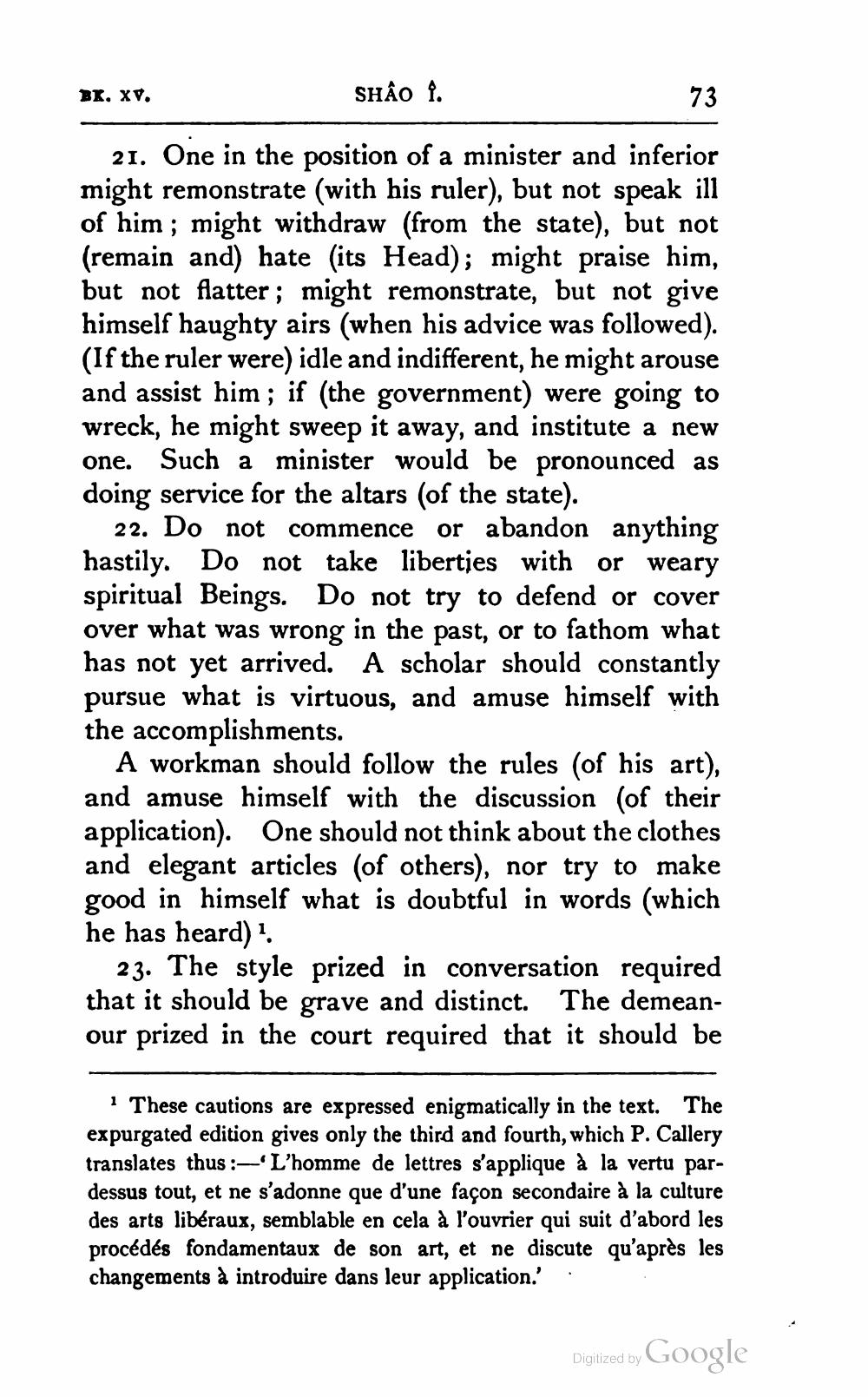________________
BK. XV.
SHÃO i.
73
21. One in the position of a minister and inferior might remonstrate (with his ruler), but not speak ill of him ; might withdraw (from the state), but not (remain and) hate (its Head); might praise him, but not flatter; might remonstrate, but not give himself haughty airs (when his advice was followed). (If the ruler were) idle and indifferent, he might arouse and assist him; if (the government) were going to wreck, he might sweep it away, and institute a new one. Such a minister would be pronounced as doing service for the altars (of the state).
22. Do not commence or abandon anything hastily. Do not take liberties with or weary spiritual Beings. Do not try to defend or cover over what was wrong in the past, or to fathom what has not yet arrived. A scholar should constantly pursue what is virtuous, and amuse himself with the accomplishments.
A workman should follow the rules (of his art), and amuse himself with the discussion of their application). One should not think about the clothes and elegant articles (of others), nor try to make good in himself what is doubtful in words (which he has heard).
23. The style prized in conversation required that it should be grave and distinct. The demeanour prized in the court required that it should be
These cautions are expressed enigmatically in the text. The expurgated edition gives only the third and fourth, which P. Callery translates thus :- L'homme de lettres s'applique à la vertu pardessus tout, et ne s'adonne que d'une façon secondaire à la culture des arts libéraux, semblable en cela à l'ouvrier qui suit d'abord les procédés fondamentaux de son art, et ne discute qu'après les changements à introduire dans leur application.'
Digitized by Google




